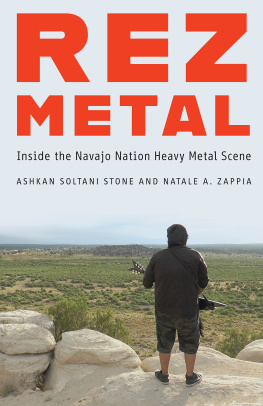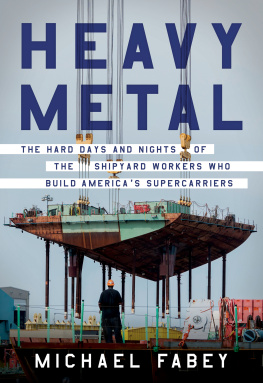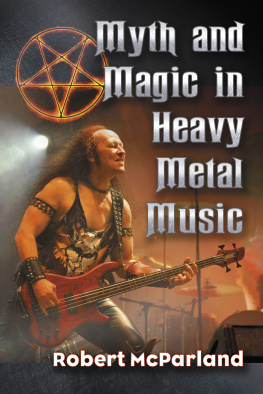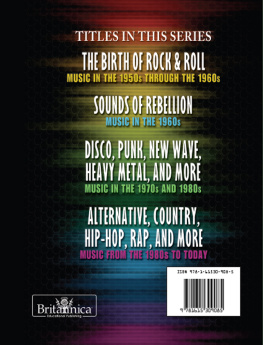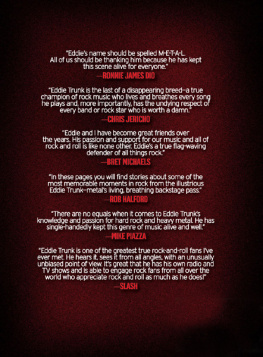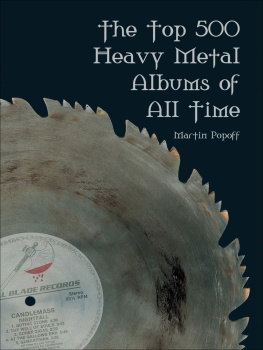Anthem Press
An imprint of Wimbledon Publishing Company
www.anthempress.com
This edition first published in UK and USA 2022
by ANTHEM PRESS
7576 Blackfriars Road, London SE1 8HA, UK
or PO Box 9779, London SW19 7ZG, UK
and
244 Madison Ave #116, New York, NY 10016, USA
Copyright Anna S. Rogers and Mathieu Deflem 2022
The author asserts the moral right to be identified as the author of this work.
All rights reserved. Without limiting the rights under copyright reserved above, no part of this publication may be reproduced, stored or introduced into a retrieval system, or transmitted, in any form or by any means (electronic, mechanical, photocopying, recording or otherwise), without the prior written permission of both the copyright owner and the above publisher of this book.
British Library Cataloguing-in-Publication Data
A catalogue record for this book is available from the British Library.
Library of Congress Control Number: 2021946520
ISBN-13: 978-1-83998-133-3 (Hbk)
ISBN-10: 1-83998-133-4 (Hbk)
ISBN-13: 978-1-83998-136-4 (Pbk)
ISBN-10: 1-83998-136-9 (Pbk)
This title is also available as an e-book.
In this work, we present a sociological investigation of perceptions concerning the contemporary presence and reception of women in the heavy metal community. Framed in feminist perspectives of doing gender, this study is based on semi-structured interviews, which for comparative purposes include both men and women who self-identify as fans of heavy metal, in order to assess some of the dynamics and relevance of gender in this traditionally hypermasculine sphere of popular culture. This examination is specifically developed within the framework of the perspective of doing gender and relies on an original set of interview data to address specified research questions. What do metalheads themselves think about the manner in which metal women do gender when there are (still) relatively few, though undeniably more than before, of them around? What do heavy metal fans themselves see as the opportunities and the obstacles of the process of women claiming their place in the heavy metal (sub)culture? And, how do observed changes of the increasing presence of women in heavy metal lead the way to foster greater equality with respect to gender in this world of rock music. To address these questions, we rely on a unique data set of original interviews and, in the development and discussion of relevant themes, also develop a serious engagement with the existing relevant literature on heavy metal, popular culture, and gender.
The publication of this work as a book that is relatively brief but, we hope, also insightful, rather than in the form of either a journal article or a lengthier monograph, is fitting given the scope of our investigations. The findings of our work rely on semi-structured interviews with a relatively small sample of 20 respondents. This study therefore cannot be oriented at generalization, but is meant to illustratively show the value of our sociological perspective on gender in one area of popular culture. Our approach is most critically aimed at an in-depth qualitative strategy to empirically uncover meaning and identity of self and others in a relatively unique and surely fascinating subculture of popular music. Given these objectives, it would be difficult, if not outright impossible, to write up the results of our work in any meaningful way in a journal article or book chapter. Yet, although relatively limited in scope and precise in its focus, our study is oriented at unraveling the perceptions of heavy metal fans concerning the evolving status of the woman metalhead. To convey these subjective but real ideas concerning self and others appropriately, we adopt a narrative approach that, by definition, uses a lot of words, especially as they are articulated by the respondents, to provide proper meaning and nuance. In this sense, publisher Anthem Press presented itself as an ideal opportunity, for us as authors and, hopefully, for the readers as well.
The format of this work and its focus on an aspect of popular culture, we further hope, may enable this book to reach an audience that is both broad, including even some of the very subjects of our study, but also sufficiently specialized and of interest to relevant academic audiences of scholars and students, especially in the areas of gender and (popular) culture. While primarily conceived as a study in the sociology of gender, this book of course also seeks to make a contribution to the scholarly study of popular culture, music, and heavy metal, areas of research that have acquired considerable popularity and to which field both authors of this book have also contributed from their respective viewpoints.
The theme of gender has increasingly been addressed in scholarship on popular culture, including heavy metal, on which subject matter a new field of so-called metal music studies has developed. Yet, while not conceived from within this area but instead framed in the sociology of gender, we do engage with the findings from all pertinent scholarly contributions, no matter their more or less developed and diverging intellectual foundations. Our elaborate engagement with other studies should prevent any misunderstanding of our scholarship as coming from outside the field. Instead, by offering a sociological analysis of gender in the world of heavy metal, we seek to develop a scholarly contribution to, rather than in, the study of music and popular culture. Our approach as scholars to study selected aspects of heavy metal culture in a detached way is all the more appropriate and called for as we are also, as popular music participants, fans of various kinds of heavy metal. The sociological orientation of our work on gender also generally fits the Anthem Press focus on books devoted to our discipline.
This book grew out of graduate work in sociology that was originally developed by the first author under the supervision of the second author. The first author has primarily developed an expertise in the areas of the sociology of gender and popular culture. She conducted all the interviews reported in this book, developed the theoretical perspective, and conducted all analyses of interviews in terms of the research questions she had formulated as well. The second author mostly contributed to finalizing the writing of the book and the integration and presentation of the theoretical and empirical materials ).
Because of our focus on gender, a brief note is in order on some of the terminology adopted in this book. Adopting current social science conventions, we avoid use of the terms male(s) and female(s) except to explicitly denote references to biology or body and/or when these words are used not as concepts but as everyday words by the participants themselves in the heavy metal community, including the respondents of the interviews in our study. Otherwise, we use the terms man/men and woman/women, both as nouns and adjectives, to refer to the cultural construct of gender as the central focus of our investigations.
Preparing and writing this book, we benefited greatly from conversations with some of our nearest mentors and colleagues, especially Brent Simpson, David Melamed, Lynn Weber, and Andrea Henderson-Platt. We thank our dear friend Derek Silva for his sage advice that encouraged us to write this book. Without his support, this work would simply not exist. We also benefited from organizers and audiences at meetings of the American Sociological Association and the Southern Sociological Society, where we presented research on related aspects of popular culture and gender. We are grateful for the support we received from the University of South Carolina, our institutional home at the time the research for this book was conducted. We thank the editors and anonymous reviewers of Anthem Press for their very helpful comments and suggestions that greatly improved this work. We owe especially warm thanks to editor Megan Grieving whose professionalism in overseeing the finalization of this book was matched only by her kindness and generosity. And, of course, we thank the awesome metalheads who agreed to be interviewed for this book.


